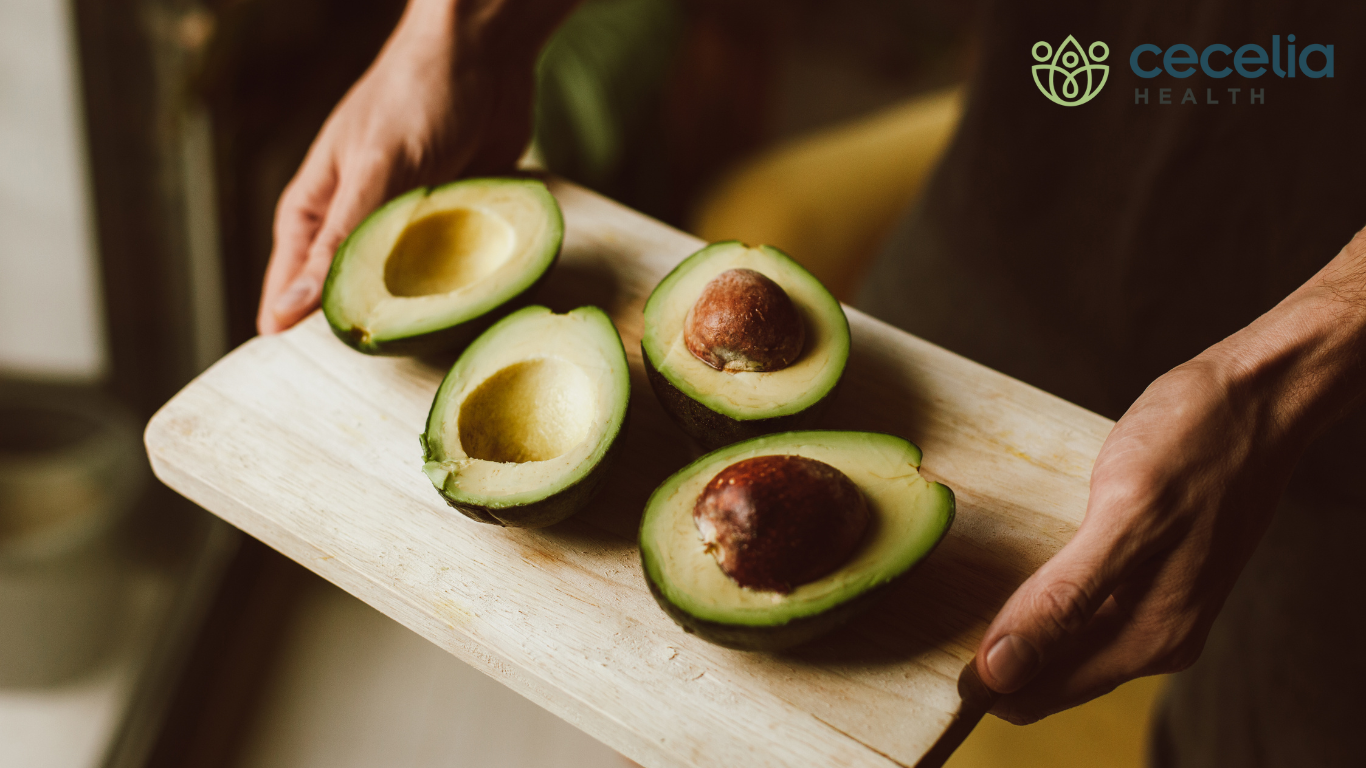Avocados have been in the spotlight over the past several years and are considered quite the superfood, with good reason, as they are packed full of nutrients, versatile and delicious. When you think of avocados, guacamole most often comes to mind, being served at restaurants with tortilla chips as a popular dip. However, avocados can also be found on many menus as an addition to salads, sandwiches, and omelets, or as a topping on a poke bowl or burrito bowl. They can also be featured as the main ingredient in trendy and tasty avocado toast. Their popularity has grown in the health and wellness world over the years because they are highly nutritious and have several health benefits. They are rich in a variety of vitamins and nutrients.
Avocados contain multiple vitamins and minerals, which include:
- Folate
- Magnesium
- Potassium
- Riboflavin (Vitamin B2)
- Niacin (Vitamin B3)
- Pantothenic Acid (Vitamin B5)
- Pyridoxine (Vitamin B6)
- Vitamin C
- Vitamin E
- Vitamin K
Besides being full of vitamins and minerals, one of the key macronutrients avocados contain is their abundance of healthy fat. You may hesitate at first when you see the amount of fat in one avocado as it can look high.
A whole medium avocado contains about 240 calories, 13 grams carbohydrate, 3 grams protein, 22 grams fat (15 grams monounsaturated, 4 grams polyunsaturated, 3 grams saturated), 10 grams fiber, and 11 milligrams sodium.
But when you look at the actual breakdown of the types of fat, you can see that the fat in avocados is primarily unsaturated fat, with over half of the fat coming from monounsaturated fat. Monounsaturated fats have a protective factor for our heart as they can help reduce bad cholesterol levels in your blood which can lower your risk of heart disease and stroke. Eating these good fats that are found in avocados in place of saturated fats can help lower the “bad” LDL cholesterol, and it improves the ratio of total cholesterol to “good” HDL cholesterol, decreasing the risk of heart disease. Along with its high fat content, avocados are also high in fiber, both of which can help to fill you up and promote prolonged satiety after eating, making avocados a good food source to help fuel your body.
Being packed with all these great vitamins and minerals, plus being a healthy source of fat, gives avocados the ability to help the body absorb the nutrients you are eating. You cannot use the nutrients you eat unless your body is able to absorb them and put them to work. The fat in the avocado helps aid the absorption of the fat-soluble vitamins A, D, E, and K. For example, pairing avocados with green leafy vegetables can help the body absorb the nutrients from the greens and helps your body hold onto all the great vitamins and minerals from the food you are eating.
Avocados are also a good source of potassium. Eating just half of an avocado will give you 10% of the DV of potassium. Potassium helps with blood pressure regulation. Surprisingly, avocados have more potassium than bananas, and can be a good low carbohydrate way to add additional potassium to your diet.
Because of all of these healthy attributes, avocados are a welcome addition to many healthy eating plans including a heart healthy diet. Start experimenting and eating more avocados in your meal plan.
Here are some ways to get you started:
- Making a sandwich – use avocado as your fat. Replace mayonnaise with spread or sliced avocado on your bread.
- Use avocado in place of mayonnaise mixed with Greek yogurt in chicken, egg, salmon or tuna salad.
- Instead of dipping carrots or celery into Ranch dressing – whip up a quick guacamole by mashing an avocado and adding onion, lime and cilantro.
- Freeze peeled chunks for avocado and toss them in your morning smoothie.
- Top chilis and soups with some avocado garnish.
- Add avocado to salads, a rice or quinoa bowl or slice and serve with chicken or fish.
- Eat a half of avocado with a cooked egg for a quick meal or snack.
- Try some avocado toast made at home or at a restaurant.
- Use in cooking – avocados make a great substitute for butter when baking. Many vegan bakers use avocado to add moistness to cupcakes, breads and other baked goods in place of butter. Try swapping them out the next time you make one of these treats.
- Blend avocado with olive oil, lemon juice and seasonings for a quick and easy dressing for your salad.
- Top your favorite lean beef, turkey, chicken or veggie burger with sliced avocado.
- Enjoy an avocado just as it is – cut in half and sprinkle with some seasoning and eat it right out of its rind.
Check out this refreshing quick recipe with avocado as the star ingredient!
https://recipes.heart.org/en/recipes/avocado-and-coconut-refresher-smoothie
